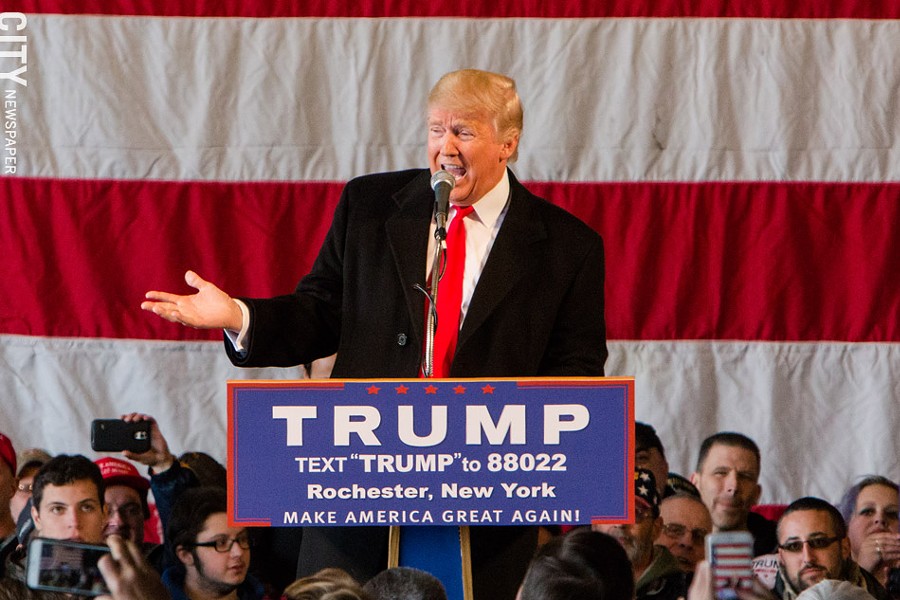In times of political fever pitch, there's typically a witch hunt directed at the arts. It begins with defunding the arts as a whole, as though they were a mere frill — but the real goal is to snuff out important, critical art. The public is encouraged to join in the roaring condemnation of anything that offends.
In these ways and others, we're discouraged from considering critical art closely enough to stimulate meaningful discussion. And by and large, it works.
The media was abuzz last week about a New York City theater, the Public, which was staging a modern production of Shakespeare's "Julius Caesar" in Central Park. In it, the title character physically resembled Trump. The show made national headlines when the Trump family denounced it, and the production lost two corporate sponsors.
In a particularly spineless and unnecessary move, the National Endowment for the Arts shirked the opportunity to educate and promote discussion. Instead, it chose to distance itself from the controversy, posting a disclaimer on its site that no NEA funds supported the Public's production.
The lethal icing to this fluffy discourse: After the shooting at the June 14 congressional baseball game practice, Donald Trump Jr. and others tweeted blame at the play. Never mind the evidence that the shooter had spent months planning this, and for years had been publicly critical of the member of Congress he critically wounded. Never mind the shooter's reported personal history of violence. And definitely never mind the conservative rhetoric about the Constitutional right to take out a despotic government.
Senator Rand Paul, who was present at the shooting, last June retweeted Fox News senior judicial analyst Andrew Napolitano: "Why do we have a Second Amendment? It's not to shoot deer. It's to shoot at the government when it becomes tyrannical!"
Ironically, Trump-supporting detractors took the Public's staged murder at face value, ignoring or ignorant of the smart, centuries-long debate about whether Caesar or Brutus is the protagonist. The play serves as a cautionary tale about violent revolt. And the Public itself said in a statement that neither the play nor its production advocates violence at all, but "makes the opposite point: those who attempt to defend democracy by undemocratic means pay a terrible price and destroy the very thing they are fighting to save."
The fact that Shakespearean plays are often modernized but still performed in the original verse isn't just because people like flowery words. The Bard was a master at using language to explore each nuance of motive or madness and to always acknowledge ambiguity. The same action can seem heroic or condemnable, or some combination of both. Few of Shakespeare's plays leave viewers with a tidy sense of resolution, not in the way that formulaic, feel-good storylines do.
The outraged political response to the play is nothing new. In a theater review for The New York Times, Michael Cooper points out that "Julius Caesar" was written "during a tense moment when Elizabethan England seethed with political plots," and has been "banned or bowdlerized" during many totalitarian regimes.
While we didn't need further proof of the Trump camp's unsophistication, its reflexive assessment of the play underscores it. Or at least points toward the family's obsession with controlling the narrative and playing the martyr. And it also says a lot about what they think of American citizens' collective intellect.
Despite defunding and political pressure, the Public completed its run of the play, which concluded on Sunday. Good for them, good for us, but we certainly have our work cut out. Critical art asks complex questions, and it's our responsibility to resist the reduction of this complexity. We must find ways to defend the arts and the artists as the classroom that they are, and hold that space open for our most daring and challenging discussions.
Rebecca Rafferty is a CITY arts writer.

